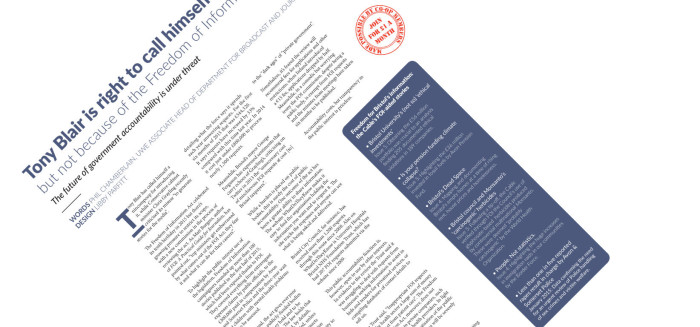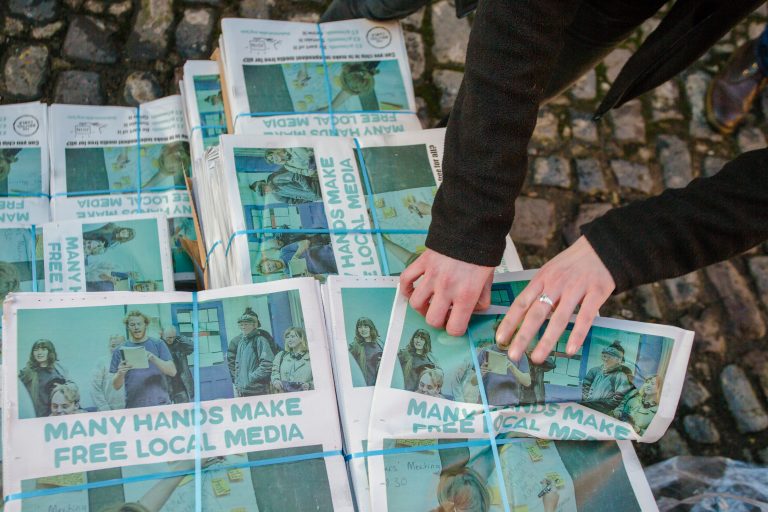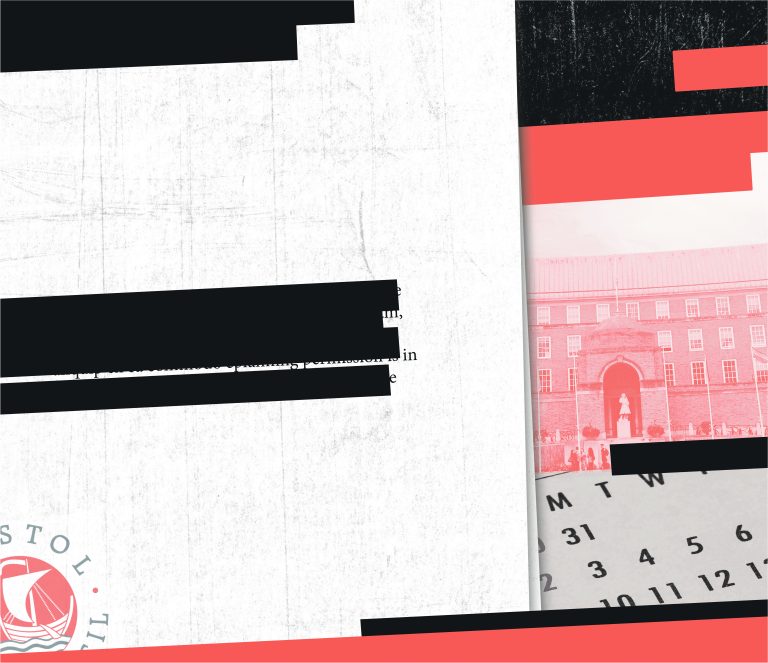Tony Blair is right to call himself a nincompoop,

Tony Blair is right to call himself a nincompoop,
but not because of the Freedom of Information Act
Words: Phil Chamberlain, UWE associate head of department for broadcast and journalism
Tony Blair has called himself a nincompoop for introducing it, while Conservative cabinet minister Chris Grayling recently criticised its misuse “to generate stories for the media”.
 The Freedom of Information Act celebrated its tenth birthday in 2015 but there’s growing pressure to restrict its scope, with a new commission in the process of reviewing the act. As Matt Burgess, author of FOI: A Practical Guide for Journalists, has pointed out, “top ministers get embarrassed by what comes out of the FOI Act; they fear it and what it can do for their careers”.
The Freedom of Information Act celebrated its tenth birthday in 2015 but there’s growing pressure to restrict its scope, with a new commission in the process of reviewing the act. As Matt Burgess, author of FOI: A Practical Guide for Journalists, has pointed out, “top ministers get embarrassed by what comes out of the FOI Act; they fear it and what it can do for their careers”.
To highlight the public-interest use of the legislation, Freedom of Information campaigners rounded up more than 100 stories published in the first half of 2015, which had been exposed thanks to FOI. They covered everything from extravagant expenses claims by public officials, to the £300,000 paid in compensation by Avon and Somerset Police and the three‐year wait that children with mental health problems have to be assessed.
As things stand, the act gives everyone the right to ask publicly-funded bodies for information they hold and to be sent answers for free. The law holds that public authorities should, by default, release information requested, unless it’s too expensive to collate or meets one of a number of other exemption criteria, ranging from national security to commercial confidence.
An uncomfortable burden
Campaigners would argue that these exemptions already go too far. But it seems that for some the act remains a burden. The government’s review panel is chaired by a civil servant, with three politicians also on the panel. They include former home secretary Jack Straw, who has expressed hostility to the act he helped introduce during Labour’s years in government.
The FOI commission is digesting 30,000 responses to six questions it posed in a consultation. These focused on issues of cost and whether organisations feel inhibited in their private discussions.
The review threatens to treat access not as a right but as a privilege – a threat many subjected to FOI would undoubtedly like to see carried out. Dominating Avon and Somerset Police’s FOI page is a table detailing what the force says it spends each year answering requests. For the first six months of 2015 that was £544,320. It says requests have increased by 33% compared with this time last year. In 2014 it cost just under £800,000 to process nearly 1,500 requests.
Meanwhile, Bristol’s mayor George Ferguson has expressed sentiments that carry echoes of Grayling’s, criticising on Twitter in 2013 the
“unnecessary cost of mischievous FOI requests at cost [to] Bristol taxpayers”.
While a burden is placed on public bodies, this is surely the cost of public accountability. One outcome of the act has been a greater ability to share information. The website WhatDoTheyKnow makes it easy to find the organisation holding the information you want and to request it. The site tracks the responses and anyone can see what is being asked and delivered.
Bristol City Council, for instance, has received more than 1,200 requests through this route since 2008. Also on WhatDoTheyKnow is University Hospitals Bristol NHS Foundation Trust, which has had 207 FOI requests submitted via the website since 2009.
This public accountability function is, however, open to use by other interests. In evidence to the review the Trust said it was struggling to deal with requests from businesses seeking information to assist in bids and tenders for privatised services, or compiling databases of contact details to sell on.
The Trust said, “Inappropriate FOI requests cost the health sector a large sum of money and detract from patient care”. The Freedom of Information Act, moreover, does not apply in return to private companies, such as these would‐be health providers. In light of the increasing privatisation of the public sector, information access will be severely restricted on this count too.
Back to the dark ages?
Campaigners from all sides see a hardening on access rights as a step backwards. Even the Daily Mail editor Paul Dacre described the moves to restrict the act as “entirely antipathetic to the mood of the times in which voters expect more, not less, transparency in the way they are governed”. Meanwhile the current information commissioner recently warned of the return to the “dark ages” of “private government”.
Nonetheless, it’s feared the review will recommend fees for applications and other restrictions; when Ireland introduced a €15 fee, applications dropped by half. Meanwhile, in a comedic but worrying irony the FOI commission, despite being a public body, is exempt from FOI requests and the minutes from meetings have taken six months to be published.
Accountability costs, but transparency in the public interest is priceless.
Freedom for Bristol’s information: the Cable’s FOI‐aided stories
• Bristol University’s (not so) ‘ethical investments’
Issue 5: Obtaining the £56 million portfolio was crucial to an analysis finding 205 documented ethical violations in 189 companies.
• Is your pension funding climate collapse?
Issue 5: Highlighting the £36 million invested in fossil fuels by Avon Pension Fund.
• Bristol’s Dead Space
Issue 4: Mapping and documenting Bristol’s empty homes at a time of rising rent, house prices and homelessness.
• Bristol council and Monsanto’s ‘carcinogenic’ herbicides
Issue 5: Following a tip‐off, the Cable verified through FOI the Council’s use of glyphosate‐based herbicides produced by controversial multinational Monsanto. These were deemed “probably carcinogenic” by the World Health Organization.
• People. Not statistics.
Issue 4: Highlighting the huge increases in immigration raids in our communities by the Border Force.
• Less than one in five reported rapes result in charge by Avon & Somerset Police
January 2015: Data confirming the need for an urgent review of Police handling of sex crimes and victim welfare.












